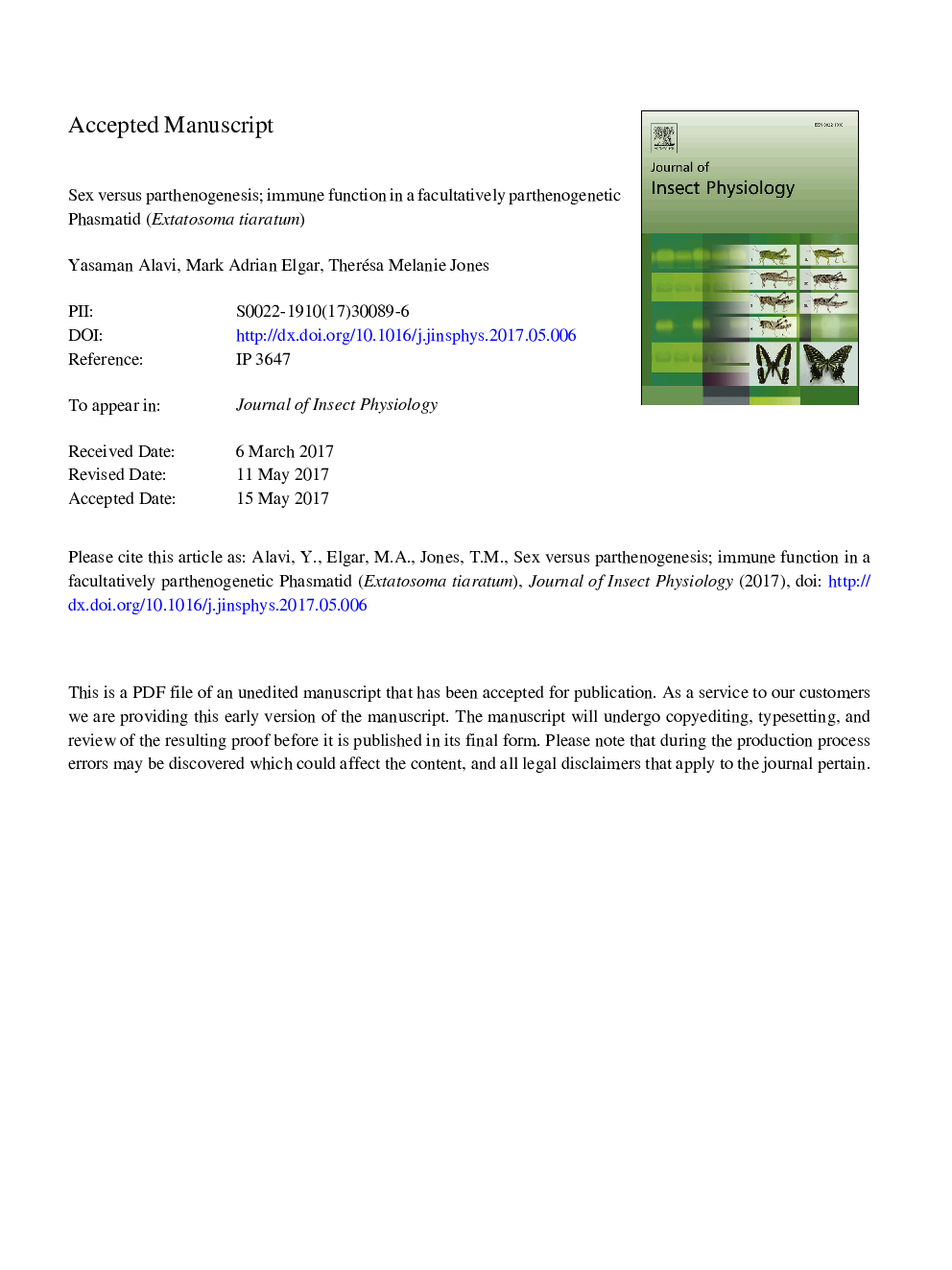| Article ID | Journal | Published Year | Pages | File Type |
|---|---|---|---|---|
| 5593138 | Journal of Insect Physiology | 2017 | 22 Pages |
Abstract
Facultative parthenogenetic species, in which females can alternate between sex and parthenogenesis, are useful models to investigate the costs and benefits of sex and parthenogenesis, an ongoing issue in biology. The necessary empirical studies comparing the outcomes of alternative reproductive modes on life history traits are rare and focus mainly on traits directly associated with reproductive fitness. Immune function determines the ability of individuals to defend themselves against injury and disease and is therefore likely to have a significant impact on fitness. Here, we used the facultatively parthenogenetic Australian phasmatid, Extatosoma tiaratum, to investigate the effect of both maternal and offspring mode of conception (sexual or parthenogenetic) on offspring immune function (haemocyte concentration, lytic activity and phenoloxidase activity). We show that when parthenogenesis persists beyond one generation, it has negative effects on immune response in terms of haemocyte concentration and lytic activity. Phenoloxidase activity positively correlates with the level of microsatellite heterozygosity. Moreover, immune response decreases across consecutive sampling weeks, suggesting there are physiological constraints with respect to mounting immune responses in close time intervals.
Related Topics
Life Sciences
Agricultural and Biological Sciences
Insect Science
Authors
Yasaman Alavi, Mark Adrian Elgar, Therésa Melanie Jones,
